One of the reasons I talk about neo-noir so much is that, to me, it embodies everything I love in a great story—something new, innovative, and different; something dark, tragic, and conflicted; something with atmosphere, mood, and depth. Today’s article will talk about ten of my favorite neo-noir films, and how they can inform, inspire, and elevate your prose. I won’t include a ton of plot summation, as you have probably heard and/or seen most or all of these movies. If you haven’t, then hop to it. I’ll do my best to avoid spoilers.
(Also, when it comes to neo-noir, my definition is pretty broad. In fact, I have no problem seeing neo-noir overlap with fantasy, science fiction, horror, crime, mystery, Southern gothic, transgressive, and magical realism. Not to mention, literary fiction.)
In no particular order:
![]() 'Mulholland Drive' directed by David Lynch (2001)
'Mulholland Drive' directed by David Lynch (2001)
PLOT: “A dark-haired woman (Laura Elena Harring) is left amnesiac after a car crash. She wanders the streets of Los Angeles in a daze before taking refuge in an apartment. There she is discovered by Betty (Naomi Watts), a wholesome Midwestern blonde who has come to the City of Angels seeking fame as an actress. Together, the two attempt to solve the mystery of Rita's true identity. The story is set in a dream-like Los Angeles, spoilt neither by traffic jams nor smog.”—Wikipedia
I’m a huge fan of David Lynch and this may be my favorite of his films. What makes this neo-noir is the loss of innocence, the heavy mood and atmosphere, the moments of surrealism and supernatural, as well as the twists and turns that unfurl as this story comes crashing to a powerful conclusion. Naomi Watts as Betty is a fascinating protagonist to follow, and while her POV is reliable and linear in the beginning, we see it all come apart at the end, leading us to some intense emotions and reactions.
HOW THIS FILM CAN INFLUENCE YOUR FICTION: Reliable narrator vs. unreliable narrator; atmosphere and mood; twists and turns; earned ending with a lot of emotion and impact; duality in protagonist.
![]() 'Memento' Directed by Christopher Nolan (2000)
'Memento' Directed by Christopher Nolan (2000)
PLOT: “Leonard (Guy Pearce) is tracking down the man who raped and murdered his wife. The difficulty, however, of locating his wife's killer is compounded by the fact that he suffers from a rare, untreatable form of memory loss. Although he can recall details of life before his accident, Leonard cannot remember what happened fifteen minutes ago, where he's going, or why.”—Wikipedia
I am a big fan of Christopher Nolan, as is evidenced by several of his films being on this list today. The hook with Memento was of course that the whole thing is told backwards. That was the original appeal to me—could he pull it off, and make it work. That, paired with the short-term memory loss, created an innovative new story that is tense from beginning to end. And in many ways we have our standard noir tropes in our two main characters—Leonard (the informal “detective”) and Natalie (Carrie-Ann Moss) as his femme fatale. It’s also the first film I can remember seeing where clues are hidden in tattoos all over the protagonist’s body.
HOW THIS FILM CAN INFLUENCE YOUR FICTION: Complicated plotting, with twists and turns; telling a story backwards (advanced technique, not easy to do); subverting classic character tropes; unique ways of hiding clues (tattoos); repeating, echoing, and overlapping without being boring or redundant.
![]() 'Blade Runner' directed by Ridley Scott (1982)
'Blade Runner' directed by Ridley Scott (1982)
PLOT: “Deckard (Harrison Ford) is forced by the police Boss (M. Emmet Walsh) to continue his old job as Replicant Hunter. His assignment: eliminate four escaped Replicants from the colonies who have returned to Earth. Before starting the job, Deckard goes to the Tyrell Corporation and he meets Rachel (Sean Young), a Replicant girl he falls in love with.”—Wikipedia
This may be my favorite movie of all time. Why? Well, it has just about everything, right? And it starts with the classic noir tropes—detective/cop (in this case, the retired Deckard, played by Harrison Ford); a femme fatale, in Rachel—a stunning and complicated character, played by Sean Young; crimes and mysteries to be solved; eccentric villains; and tons of atmosphere. The writing is excellent, not just in the final monologue of Roy Batty, but throughout. The science fiction doesn’t take away from the story—in other words, we aren’t bogged down in exposition and world building—and the special effects still work to this day. It’s a stunning movie that should be watched again and again.
HOW THIS FILM CAN INFLUENCE YOUR FICTION: Subverting classic tropes in a new way; sleight of hand, misdirection, twists and turns (including the heated discussion about what the ending/s mean); characters that we really care about; and of course, layers of atmosphere, using all five senses.
![]() 'Seven' directed by David Fincher (1995)
'Seven' directed by David Fincher (1995)
PLOT: “When retiring police Detective William Somerset (Morgan Freeman) tackles a final case with the aid of newly transferred David Mills (Brad Pitt), they discover a number of elaborate and grizzly murders. They soon realize they are dealing with a serial killer (Kevin Spacey) who is targeting people he thinks represent one of the seven deadly sins. Somerset also befriends Mills' wife, Tracy (Gwyneth Paltrow), who is pregnant and afraid to raise her child in the crime-riddled city.”—Wikipedia
Another of my favorite directors is David Fincher. When this movie came out, I can remember how it blew me away. Of course, there is the ending, but we won’t talk about what’s in the box, right? The pacing, the mood and atmosphere, the pursuit of the seven deadly sins—it’s all compelling storytelling. The neo-noir is in every aspect of this, including the detectives, one about to retire, one still fairly new to the force. The echo of the sins as chorus, the rituals, the villain, and the way it all builds to a totally unexpected ending is powerful and intense.
HOW THIS FILM CAN INFLUENCE YOUR FICTION: The structure of the seven deadly sins has been done a lot, but the use of a chorus like this can be a great carrot to your horse and wagon; plotting; creating characters we like, before doing something horrible to them; actions and consequences; twists and turns; endings with impact.
![]() 'Angel Heart' directed by Alan Parker (1987)
'Angel Heart' directed by Alan Parker (1987)
PLOT: “Harry Angel (Mickey Rourke) is a private detective contracted by Louis Cyphre (Robert De Niro) to track down the iconic singer Johnny Favorite. However, everybody that Angel questions about Favorite seems to meet a tragic demise. Eventually the trail leads Angel to New Orleans where he learns that Favorite had dabbled in the black arts. As Favorite's whereabouts and true identity become clear, Angel learns that being hired by Cyphre was not a random choice.”
I mean, it all starts with De Niro and Rourke, right? And Lisa Bonet has a breakout performance as well. The acting in this film is brilliant—the scene where De Niro eats the egg, that’s worth the price of admission alone. Those fingernails! “I know who I am,” is Rourke at his best—the pain, the suffering, the memories slowly creeping to the surface, the denial, and the acceptance. The backdrop of New Orleans is a big part of this film, too, helping us to believe the voodoo, the supernatural, and the unthinkable. The atmosphere is definitely part of what makes this neo-noir, but also Rourke as a private detective trying to figure out what’s going on, as well as the mystery and tension building across this film to a satisfying conclusion.
HOW THIS FILM CAN INFLUENCE YOUR FICTION: Subverting tropes; unreliable narrator; voodoo and superstition; setting, tone, and atmosphere; misdirection, subtle clues, twists, and turns.
![]() 'Oldboy' directed by Park Chan-wook (2003)
'Oldboy' directed by Park Chan-wook (2003)
PLOT: “Dae-Su is an obnoxious drunk bailed from the police station yet again by a friend. However, he's abducted from the street and wakes up in a cell, where he remains for the next 15 years, drugged unconscious when human contact is unavoidable, otherwise with only the television as company. And then, suddenly released, he is invited to track down his jailor with a denouement that is simply stunning.”—Wikipedia
Part of The Vengeance Trilogy, this is a film that will shock you, surprising you in many ways, as the story comes to a powerful, emotional ending. There is so much neo-noir is this film—the gritty overall sensation, the unreliable narrator, the chaos and vengeance, the violence, as well as the complicated and emotional plot. There is a fight scene in the middle of this film that is often cited as the best single shot fight scene in cinematic history. The balance between subtle, quiet moments and dark, violent action is what propels this film forward.
HOW THIS FILM CAN INFLUENCE YOUR FICTION: Definitely some of the most complicated plotting I’ve seen in a film; twists and turns, misdirection, red herrings, sleight of hand; how to leave clues that add up to a powerful revelation, and epiphany; balancing violence with quiet introspection; character; transgressive themes and taboo subject matter, handled with grace.
![]() 'The Machinist' directed by Brad Anderson (2004)
'The Machinist' directed by Brad Anderson (2004)
PLOT: “Factory worker Trevor Reznik (Christian Bale) suffers from insomnia so severe that his condition has taken its toll on his weight and his mental health. When Trevor unintentionally causes an on-the-job accident that horribly injures a coworker (Michael Ironside), he begins to become even more troubled. Despite a relationship with Stevie (Jennifer Jason Leigh), a pretty prostitute, Trevor descends further into paranoia, blaming his problems on an enigmatic figure named Ivan (John Sharian).”—Wikipedia
This may be the role of Bale’s career, and Leigh is right there with him. The weight loss that Bale had to incur for this role, it’s shocking. That goes a long way toward selling us on his downward spiral, the mood and atmosphere heavy, layered, and intense. There are many cliché stories out there that involve sleep and waking up, but the way that this film handles those aspects, the disorientation, the lies and confusion—it’s just brilliant. The ending, to me, was innovative and shocking, and I bought it 100%. It was very satisfying, even as it all came apart, the truth revealed, the emotion and tension palpable. If we don’t care about Trevor, if we don’t root for him, want him to get his life together, then none of this matters, right? (I could say that about all of these films.) The way we wallow in the mundane, the grind of his daily life, the dysfunction of his eccentricities, and his few relationships—it all adds up. This is taking a theme and running with it, all the way to the end.
HOW THIS FILM CAN INFLUENCE YOUR FICTION: The beauty of the slow reveal; atmosphere, mood, and tone; theme; truth, lies, deception, sleight of hand, and misdirection; unreliable narrator; eccentric characters; deviant behavior.
![]() 'Inception' directed by Christopher Nolan (2010)
'Inception' directed by Christopher Nolan (2010)
PLOT: “Dom Cobb (Leonardo DiCaprio) is a thief with the rare ability to enter people's dreams and steal their secrets from their subconscious. His skill has made him a hot commodity in the world of corporate espionage but has also cost him everything he loves. Cobb gets a chance at redemption when he is offered a seemingly impossible task: Plant an idea in someone's mind. If he succeeds, it will be the perfect crime, but a dangerous enemy anticipates Cobb's every move.”—Wikipedia
Here’s our second Nolan entry. There is so much to love about this film. What immediately grounds it in neo-noir, for me, is the caper, right? It’s a classic heist film disguised as science fiction, layered in fantasy and dreams. There are crimes to be committed, the jobs at hand, but also the fascinating ways that they are able to invade these dreams, and how they distort time. There is also a lot of emotion in this story, especially the love between Cobb and Mal (Marion Cotillard). The plot is twisted, and the way it builds to the ending, that spinning top, it’s tense, and earned, for sure. And what a cast—Tom Hardy, Ellen Page, Joseph-Gordon Levitt, Michael Caine, Cillian Murphy, Lukas Haas, Tom Berenger, and Ken Watanabe. Wow.
HOW THIS FILM CAN INFLUENCE YOUR FICTION: Complicated plots that don’t lose the audience; layers of theme; realism vs. fantasy; satisfying open-ended endings; world building; technology and science without being boring; succeeding and failing.
![]() 'Leon: The Professional' directed by Luc Besson (1994)
'Leon: The Professional' directed by Luc Besson (1994)
PLOT: “Mathilda (Natalie Portman) is only 12 years old, but is already familiar with the dark side of life: her abusive father stores drugs for corrupt police officers, and her mother neglects her. Léon (Jean Reno), who lives down the hall, tends to his houseplants and works as a hired hitman for mobster Tony (Danny Aiello). When her family is murdered by crooked DEA agent Stansfield (Gary Oldman), Mathilda joins forces with a reluctant Léon to learn his deadly trade and avenge her family's deaths.”
Many of these films have inspired my short stories and novels, but this one especially had a heavy influence on my third novel, Breaker. How is this film neo-noir and not just crime or mystery or thriller? Well, for me, it’s how they innovate and subvert expectations. First, it’s the inclusion of a 12-year-old girl, Mathilda, as Léon’s partner. Secondly, it’s the assassin with a heart of gold, the ways that he shows us his rituals, his life, his careful and calculated way of existing in the world, and how adding her to this makes things very complicated. Which of course leads us to the ending, which, if you’ve seen the film, you know has a lot of emotion and impact.
HOW THIS FILM CAN INFLUENCE YOUR FICTION: Balancing familiar tropes and characters with innovative choices and people; rituals and behaviors; eccentric characters; heart and emotion in the middle of crime and violence.
![]() 'No Country For Old Men' directed by Joel and Ethan Coen (2007)
'No Country For Old Men' directed by Joel and Ethan Coen (2007)
PLOT: “While out hunting, Llewelyn Moss (Josh Brolin) finds the grisly aftermath of a drug deal. Though he knows better, he cannot resist the cash left behind and takes it with him. The hunter becomes the hunted when a merciless killer named Chigurh (Javier Bardem) picks up his trail. Also looking for Moss is Sheriff Bell (Tommy Lee Jones), an aging lawman who reflects on a changing world and a dark secret of his own, as he tries to find and protect Moss.”—Wikipedia
While this film starts out as a quiet, sleepy western of sorts, it quickly turns into something else entirely. Much of Cormac McCarthy’s work defies definition—is it a western, horror, crime, drama, post-apocalyptic—or simply dark literary fiction? The answer is usually yes—all of the above. We have the voice-over work of Jones that opens the film, as the sheriff, and that’s classic noir right there. The violence starts right away—the threat, the tension, and the foreshadowing. And that’s also classic noir. And then of course we meet Anton Chigurh, the scene in the jail, and that weird bob haircut of his—unsettling is so many ways. Not to mention the cattle gun, and his victim on the highway. The Coen brothers have shown us that noir (and neo-noir) can of course extend to the West, to the rural (see also Fargo and Blood Simple, for example), not be limited to big cities and urban settings.
HOW THIS FILM CAN INFLUENCE YOUR FICTION: Subverting the expected; rural locations and settings vs. urban; eccentric characters; insight and epiphany, as well as denouement; chaos vs. order.
HONORABLE MENTIONS / OTHER FILMS TO STUDY: L.A. Confidential, Body Heat, Sin City, Blood Simple, Pulp Fiction, The Usual Suspects, Fargo, Blue Velvet, Drive, Reservoir Dogs, Lost Highway, Fight Club, Nightcrawler, The Black Dahlia, The Hitcher, Gone Girl, The Game, Shutter Island, Basic Instinct, and Minority Report.

About the author
Richard Thomas is the award-winning author of seven books: three novels—Disintegration and Breaker (Penguin Random House Alibi), as well as Transubstantiate (Otherworld Publications); three short story collections—Staring into the Abyss (Kraken Press), Herniated Roots (Snubnose Press), and Tribulations (Cemetery Dance); and one novella in The Soul Standard (Dzanc Books). With over 140 stories published, his credits include The Best Horror of the Year (Volume Eleven), Cemetery Dance (twice), Behold!: Oddities, Curiosities and Undefinable Wonders (Bram Stoker winner), PANK, storySouth, Gargoyle, Weird Fiction Review, Midwestern Gothic, Gutted: Beautiful Horror Stories, Qualia Nous, Chiral Mad (numbers 2-4), and Shivers VI (with Stephen King and Peter Straub). He has won contests at ChiZine and One Buck Horror, has received five Pushcart Prize nominations, and has been long-listed for Best Horror of the Year six times. He was also the editor of four anthologies: The New Black and Exigencies (Dark House Press), The Lineup: 20 Provocative Women Writers (Black Lawrence Press) and Burnt Tongues (Medallion Press) with Chuck Palahniuk. He has been nominated for the Bram Stoker, Shirley Jackson, and Thriller awards. In his spare time he is a columnist at Lit Reactor and Editor-in-Chief at Gamut Magazine. His agent is Paula Munier at Talcott Notch. For more information visit www.whatdoesnotkillme.com.
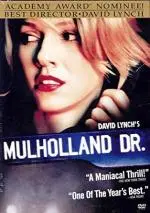 'Mulholland Drive' directed by David Lynch (2001)
'Mulholland Drive' directed by David Lynch (2001)
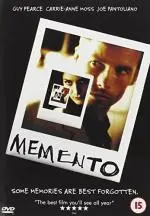 'Memento' Directed by Christopher Nolan (2000)
'Memento' Directed by Christopher Nolan (2000)
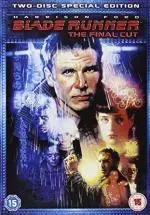 'Blade Runner' directed by Ridley Scott (1982)
'Blade Runner' directed by Ridley Scott (1982)
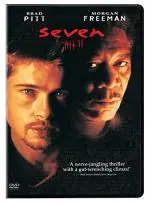 'Seven' directed by David Fincher (1995)
'Seven' directed by David Fincher (1995)
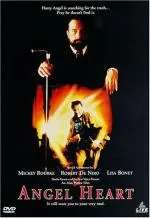 'Angel Heart' directed by Alan Parker (1987)
'Angel Heart' directed by Alan Parker (1987)
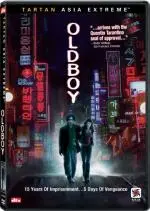 'Oldboy' directed by Park Chan-wook (2003)
'Oldboy' directed by Park Chan-wook (2003)
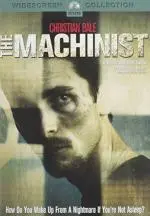 'The Machinist' directed by Brad Anderson (2004)
'The Machinist' directed by Brad Anderson (2004)
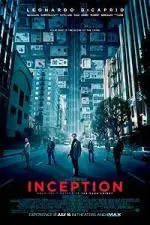 'Inception' directed by Christopher Nolan (2010)
'Inception' directed by Christopher Nolan (2010)
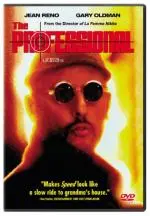 'Leon: The Professional' directed by Luc Besson (1994)
'Leon: The Professional' directed by Luc Besson (1994)
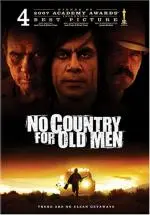 'No Country For Old Men' directed by Joel and Ethan Coen (2007)
'No Country For Old Men' directed by Joel and Ethan Coen (2007)








